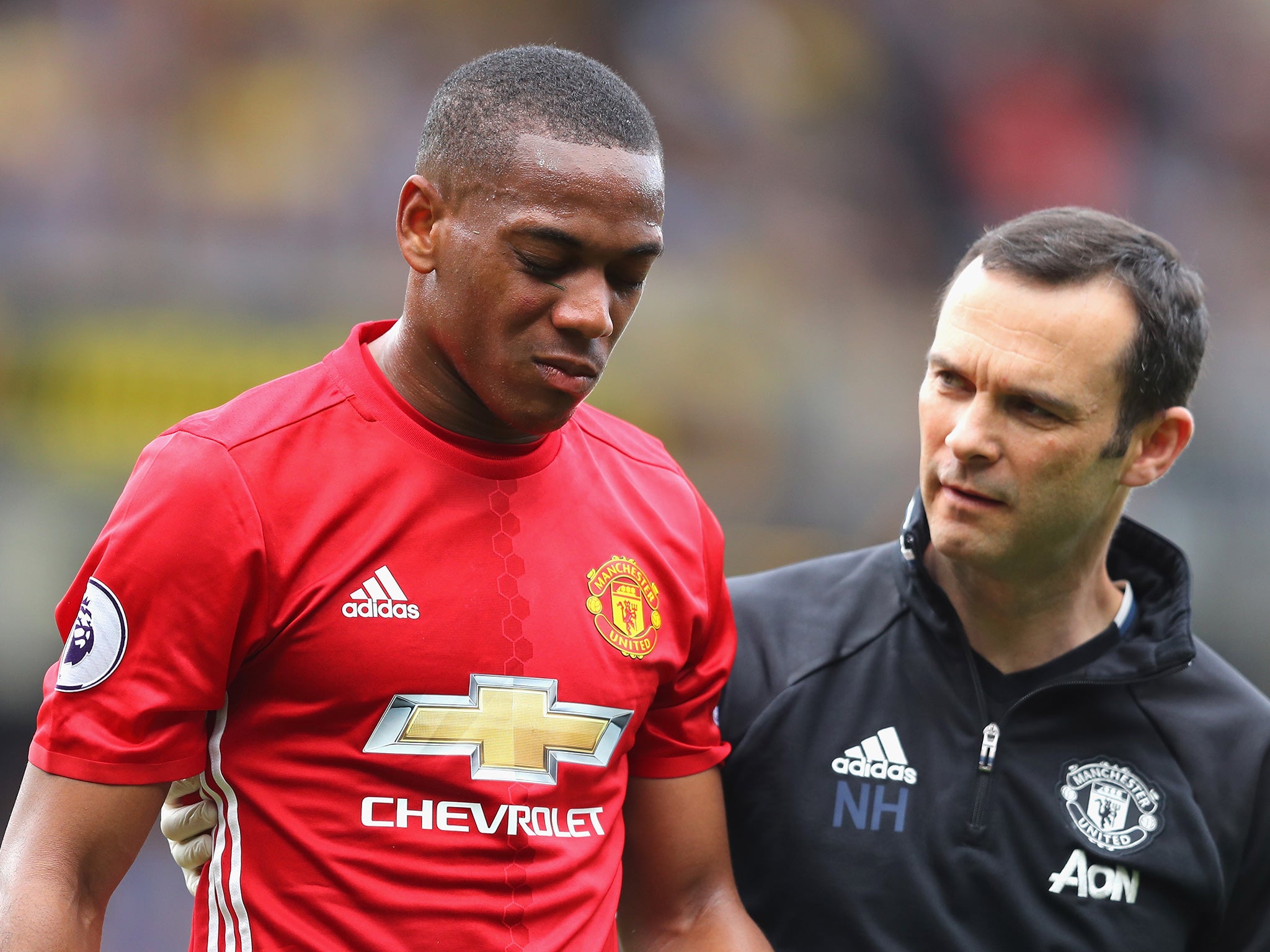Manchester United: Former England doctor defends club over Anthony Martial concussion controversy
'Impossible to tell immediately if a player's head injury is serious,' says specialist who wrote guidelines

A former England team doctor has defended Manchester United against claims that they acted recklessly by failing immediately to remove Anthony Martial from last Sunday’s game after he suffered a head injury
Martial remained on the pitch following a clash of heads with Watford's Daryl Janmaat, before appearing to hit his head again as he was dispossessed in the build-up to the home side's opening goal. He was eventually withdrawn before half time – leading some observers to criticise United for an apparent “disregard” for the risk of concussion in football.
But Ian Beasley who was England team doctor until June when he left the FA and helped create the FA guidelines on suspected concussion told the Associated Press: “It's like someone sprains their ankle. You see how it goes and within two minutes they put their hand up and say they can't carry on. You haven't done any more damage it but at least you know what the situation is.
”Things happen on the pitch that are easy to see from the stands and on camera but are not easy to see on the touchline.“
Beasley said that the test for concussion entails asking players standard questions such as what venue are they at, which half is it and who scored the most recent goal in the match.
”All the questions can be answered normally and later inside they start to feel the effects, five to 10 minutes later, sometimes two hours later,“ he said. ”Concussion is not a straightforward thing,“ he said. ”So people will ring you two hours after you have got home in the evening after the game and say, 'I've got a headache and I feel a bit groggy,' and they've got concussion. It's an evolving condition.“
The British brain injury charity Headway has called for an independent review into how concussion guidelines are implemented.
The organisation said in a statement: ”Too often over the course of the past few seasons we have seen players return to games following a head injury, only to be substituted a short time later showing more obvious signs of concussion.”
Join our commenting forum
Join thought-provoking conversations, follow other Independent readers and see their replies
Comments
Bookmark popover
Removed from bookmarks